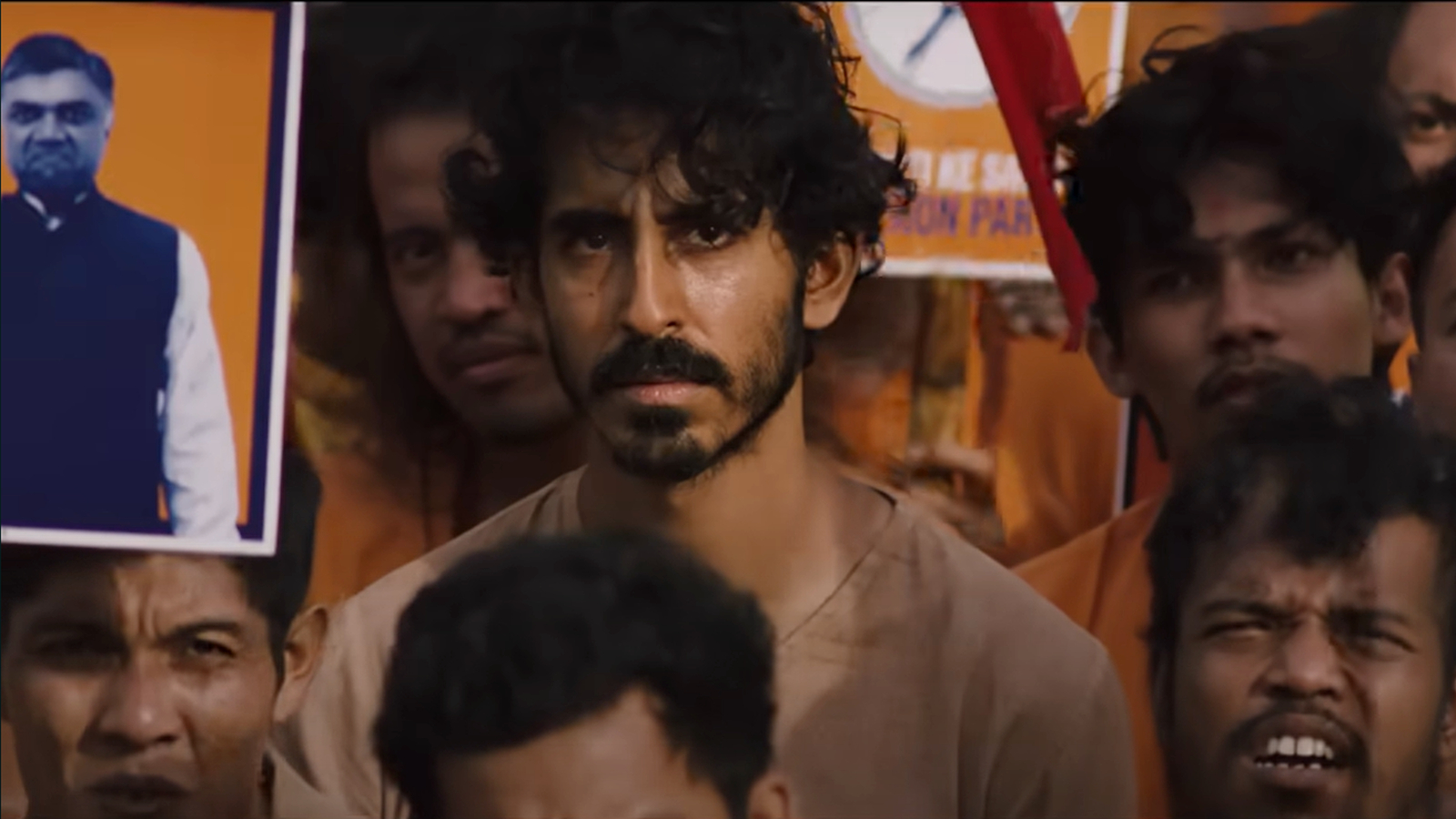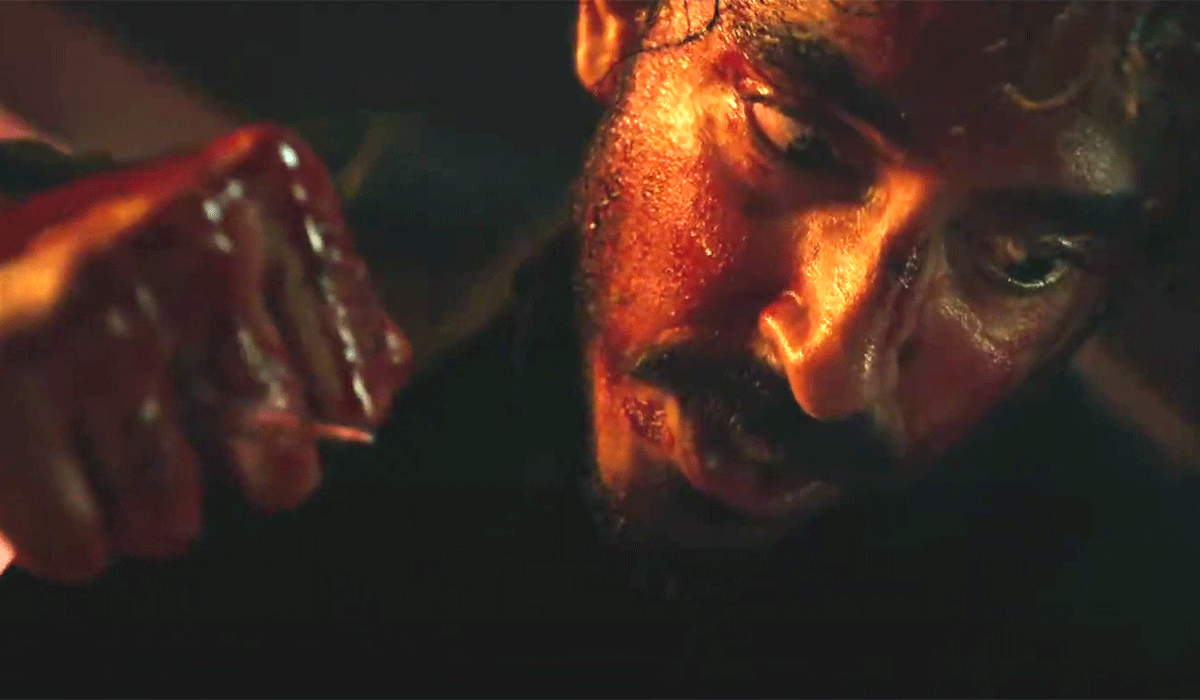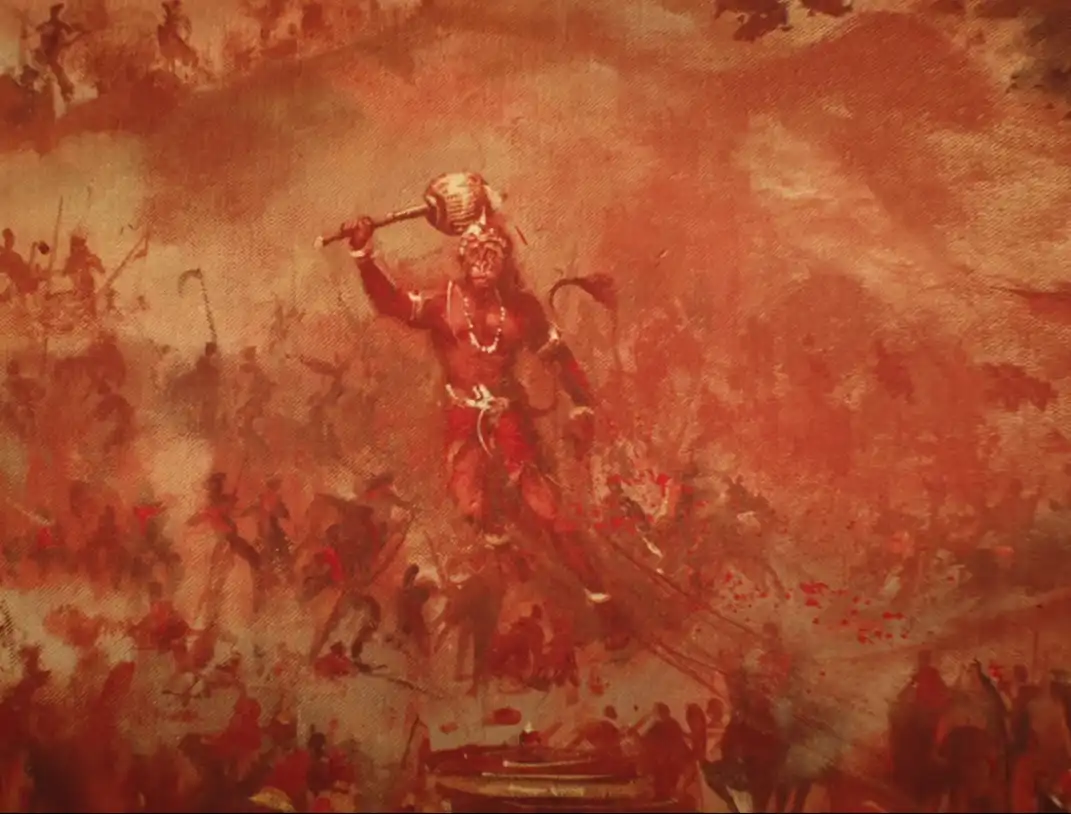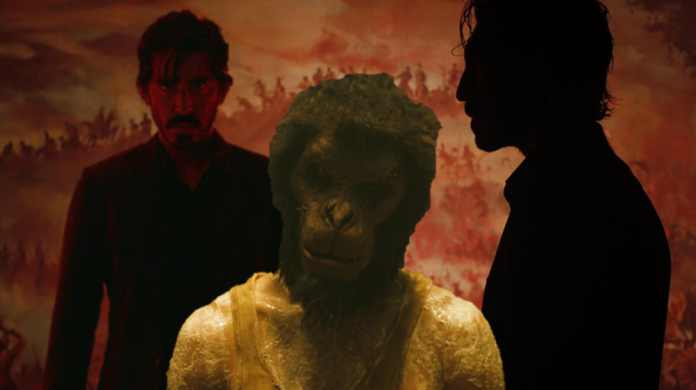Drawing from the heart of Indian mythology and pulsating with the vibrant hues of Mumbai’s underbelly, “Monkey Man” emerges as Dev Patel’s audacious directorial debut—a raw and riveting exploration of vengeance, identity, and redemption.
Set against the backdrop of a city where the divide between the affluent elite and the impoverished masses is stark, the film follows Kid, portrayed by Patel himself. Kid, a shadowy figure veiled behind a gorilla mask, navigates the brutal world of underground fight clubs, where each punch thrown is a desperate bid for survival. Dev‘s character Kid embodies a fascinating narrative choice that speaks volumes about his journey and the themes explored in the film. Kid’s name, or rather his lack of a traditional name, plays a significant role in understanding his character and the broader story. Kid’s anonymity is a metaphor for the faceless, nameless existence of the marginalized individuals in society. By not giving Kid a specific name, Patel elevates him to a symbol of every person who fights against oppression and injustice. This choice resonates deeply within the context of the film’s setting—a society sharply divided by wealth, power, and class—highlighting the plight of those who are often overlooked or silenced by the dominant forces of corruption and elitism.

Patel, renowned for his roles in “Slumdog Millionaire” and “Lion,” reinvents himself in this venture, produced together with the visionary Jordan Peele, melding his narrative with the neon-drenched, morally ambiguous landscapes of contemporary India. “Monkey Man” is not merely a tale of personal vengeance; it is a scathing critique of social stratification and the pervasive corruption that festers within.

Inspired by the indomitable spirit of Hanuman, the revered deity symbolizing strength and loyalty, “Monkey Man” delves into the psyche of a young man haunted by a traumatic past and ignited by an insatiable thirst for justice. Kid’s hands, scarred and mysterious, become instruments of chaos as he embarks on a meticulously plotted crusade against the city’s sinister syndicates. With each foe vanquished, his journey morphs into a broader commentary on societal ills—corruption, exploitation, and the indomitable gap between the haves and the have-nots.

The deity Hanuman’s role as a protector and a figure of empowerment resonates with Kid’s mission to stand up against the city’s elites who oppress the marginalized. The film’s portrayal of the Hijra community—India’s historically marginalized third gender—and Kid’s alliance with them draws a parallel to Hanuman’s compassion and respect for all beings, highlighting themes of solidarity and the fight for dignity and respect for marginalized groups.

Dev Patel, in his directorial debut, chooses to integrate the Hijra not as mere background characters but as central figures in Kid’s journey and the broader thematic tapestry of the film. This choice is emblematic of Patel’s intention to challenge and redefine societal norms, bringing to the forefront a community that has long been relegated to the fringes. By casting the Hijra in roles that are integral to the protagonist’s mission of retribution against the corrupt elite, “Monkey Man” highlights their resilience, strength, and the injustices they endure. The film’s portrayal of the Hijra community goes beyond tokenism; it is a deliberate effort to humanize and celebrate their identity, showcasing their courage in the face of adversity. Patel’s inclusion of this group is a narrative choice that enriches the film’s fabric, making it a vehicle for social commentary. It emphasizes the necessity of solidarity across different spectrums of society, especially among those who have been oppressed or marginalized.

The film’s aesthetic, a blend of gritty realism and stylized violence, pays homage to the kinetic energy of Indonesian action cinema, particularly echoing the frenetic pace and visceral impact of works like “The Raid.” Patel’s direction ensures that the fight sequences are not just exhibitions of physical prowess but also expressions of the protagonist’s inner turmoil and relentless drive for retribution.

“Monkey Man’s” narrative fabric is enriched by its dynamic soundtrack, masterfully composed by Jed Kurzel. The music—an amalgam of pulsating rhythms and haunting melodies—amplifies the film’s intensity, encapsulating the essence of Kid’s battle against the titans of corruption.

In its essence, “Monkey Man” is a testament to Dev Patel’s evolution as a storyteller and an artist. It is a film that marries the mythological with the modern, the personal with the political, offering audiences a compelling tale of a man who, masked and marginalized, rises to challenge the systemic injustices of his world. As Kid navigates the labyrinthine corridors of power and poverty, “Monkey Man” invites viewers to ponder the cost of justice and the price of silence in the face of oppression.




